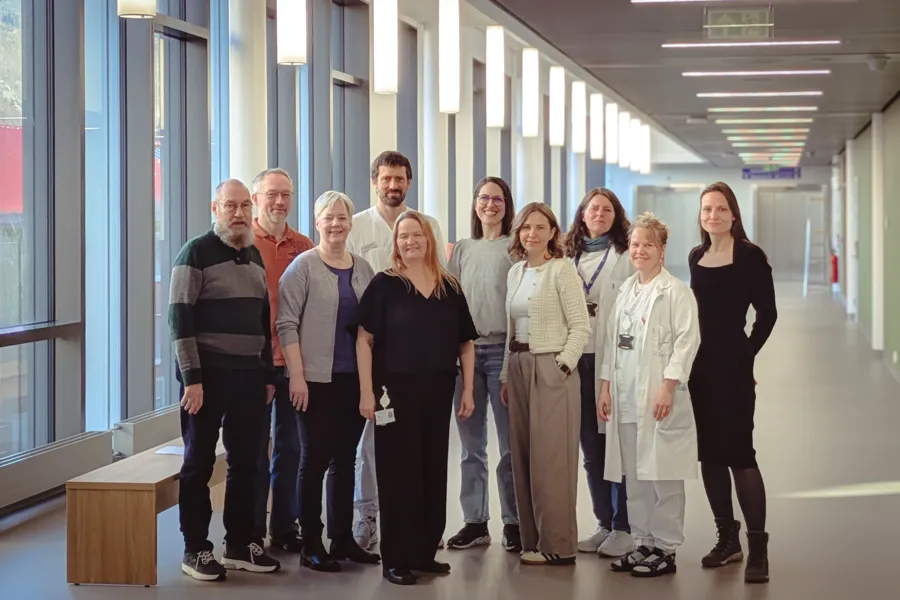About the network ART-FORSEE
ART-FORSEE aims to establish a strong connection between research and patient care, both during the project period and in the long term.

Project manager of the network: Grete May Engeseth, gmen@ihelse.net
The strength of the regional ART-FORSEE network lies in close collaboration among experts with high competence in clinical radiotherapy, technology, and research. The network is firmly rooted in clinical practice and includes a broad, multidisciplinary team of radiation therapists, medical physicists, physicians, and dosimetrists who share a common interest and complementary expertise in radiotherapy and medical technology. Additionally, a patient representative participates in the project, playing an important role in ensuring the patient perspective is incorporated.
At Stavanger University Hospital, there is extensive clinical experience with a strong focus on improving palliative care. Haukeland University Hospital has long-standing research experience and specialized expertise in both adaptive radiotherapy and proton therapy. The BioProton group at the University of Bergen are experts on biological uncertainties related to proton therapy, while the NOVO group at Western Norway University of Applied Sciences is developing new technology for range verification within a related EU innovation project.
The new methods developed within ART-FORSEE will be implemented at both hospitals where relevant. Four PhD candidates will be involved in the research and contribute to advancing knowledge. To ensure that new knowledge benefits patients, annual workshops and seminars will be organized involving researchers, patient representatives, and clinical staff. These activities aim to strengthen the collaboration between research and clinical practice, safeguard the patient perspective, and facilitate rapid translation of new knowledge into practice.
More information about the BioProton group at the University of Bergen
About the BioProton group at the University of Bergen:
The BioProton group is led by Kristian Smeland Ytre-Hauge, who is a professor of medical physics at the Department of Physics and Technology. Ytre-Hauge’s research covers a wide range of topics within proton therapy, with a special focus on variations in relative biological effectiveness (RBE).
About RBE in ART-FORSEE: Protons have a higher relative biological effectiveness than traditional radiation therapy. This means that for the same radiation dose (amount of energy deposited in the tissue), protons will cause more damage. However, there are uncertainties around the RBE value, i.e., how much more effective proton radiation is. This currently prevents us from fully exploiting the potential of proton therapy. In ART-FORSEE, we will investigate how we can better estimate this RBE factor and develop methods to account for it during proton treatment.
About the NOVO group at Western Norway University of Applied Sciences:
Ilker Meric is Associate Professor at Western Norway University of Applied Sciences. His research focuses on detector technology, experimental physics, and advanced simulations. He leads the NOVO project (Next Generation Imaging for Real-time Dose Verification Enabling Adaptive Proton Therapy), a European initiative led by Western Norway University of Applied Sciences and funded by the European Innovation Council (EIC) Pathfinder Open program (project no. 101130979) under Horizon Europe. The University of Bergen and Helse Bergen are also partners in NOVO. The project aims to develop a novel detector technology capable of estimating proton range and dose in real time during proton therapy through detection and imaging of secondary prompt gamma rays and fast neutrons produced as treatment byproducts.
Key participants in the NOVO project will also contribute to the development of the regional ART-FORSEE network and will engage in investigations of how range uncertainties may affect adaptive proton therapy